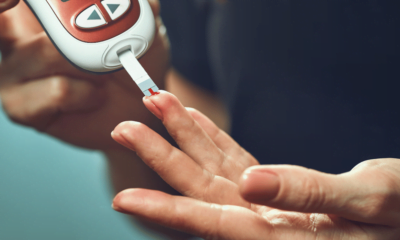It can be overwhelming trying to keep up with all the latest research on medicinal cannabis. To make things easier, we’ve summarised some new studies of note.
New medical cannabis studies have found potential in THC for the treatment of PTSD and traumatic brain injuries.
Meanwhile, an international team of scientists identified a link between past cannabis use and lower risk of urological cancers and a qualitative study in the US has concluded that more cannabis education is needed among medical students.
Get up to speed with the latest research on medical cannabis:
THC shows promise as treatment for traumatic brain injury
THC may help people suffering from a traumatic brain injury (TBI) recover their working memory and locomotor function, according to a study published in Cannabis and Cannabinoid Research in August.
The researchers from the University of South Florida treated mice with Δ9-THC and measured changes in working memory and locomotor function at baseline and days three, seven and 14.
The mice exhibited “marked improvement”, the researchers said, indicating that the phytocannabinoid could potentially reverse the deficit in memory loss following a TBI.
After an injury, the researchers said the endocannabinoid system appears to be involved in mediating brain repair, with levels of the endocannabinoid ligand 2-AG increasing in all three brain regions after seven and 14 days.

THC could be useful treatment of PTSD
Findings from a new study conducted by Wayne State University scientists suggest that THC may prove to be a beneficial pharmacological supplement to cognitive reappraisal therapy in the treatment of PTSD.
The 51 participants in the double-blind study were randomised to receive either a placebo or THC before undertaking an emotional regulation task under magnetic resonance imaging.
“THC but not placebo reduced negative affect during reappraisal, and THC increased dorsomedial prefrontal cortex activation in response to neutral images,” the researchers write in the paper’s abstract.
“Compared to placebo, THC also increased cerebellar activation during exposure to neutral images in individuals with PTSD.
“Lastly, in participants that received THC, greater posterior cingulate cortex (PCC) during reappraisal was associated with less self-reported negative affect following reappraisal blocks”
Cannabis linked with lower risk of urological cancer
A new study has found that previous cannabis use may be associated with lower risk of urological conditions.
A team of researchers from China, the UK and France analysed the cannabis use of 151,945 individuals between 2006 and 2010 via the UK Biobank.
Their multivariable analysis found that previous use of cannabis was a “significant protective factor” for renal cell carcinoma (one of the 10 most common cancers in the United States, accounting for 90 per cent of all kidney cancers) and prostate cancer.
Using a method called Mendelian randomisation, the authors found a “potential causal effect” of cannabis use on a “lower incidence” of renal cell carcinoma.
A further association between previous cannabis use and renal cell carcinoma, as well as bladder cancer, was observed in female subjects but not in males.
Medical students have “little knowledge” of cannabis
A new study has highlighted a need for more education around medicinal cannabis among medical students in the US.
Researchers from Nova Southeastern University and Florida Atlantic University have undertaken a qualitative study of students at a medical school in the US.
Their results found that students held “erroneous beliefs” about medical cannabis, used unreliable information sources and had a desire for more medical cannabis education in their course.
Eighty three participants from a school of osteopathic medicine at an unnamed university took part in several focus groups conducted in June of this year.
The cohort also showed mixed attitudes about legalisation and DEA reclassification of cannabis and believe there needs to be more medical cannabis education while in university.
Arthritis patients report improvements with CBD
Arthritis patients frequently report symptom improvements and reductions in their use of prescription medications following the use of CBD products, according to data published in the Journal of Cannabis Research.
Investigators surveyed a sample of patients with either osteoarthritis or rheumatoid arthritis. Most of the participants (70 percent) acknowledged having used CBD products for symptomatic relief.
Authors concluded: “In terms of the perceived effects of CBD on pain, physical function, and sleep quality, many patients using CBD reported symptomatic improvements. … These findings suggest that CBD could be an alternative to opioids for the treatment of arthritic pain.
Home » Science » Five new cannabis research studies to catch up on

 Science5 months ago
Science5 months ago
 Industry6 months ago
Industry6 months ago
 News5 months ago
News5 months ago
 News6 months ago
News6 months ago
 Health5 months ago
Health5 months ago
 Health3 months ago
Health3 months ago
 Science5 months ago
Science5 months ago
 Cannabis explained5 months ago
Cannabis explained5 months ago













